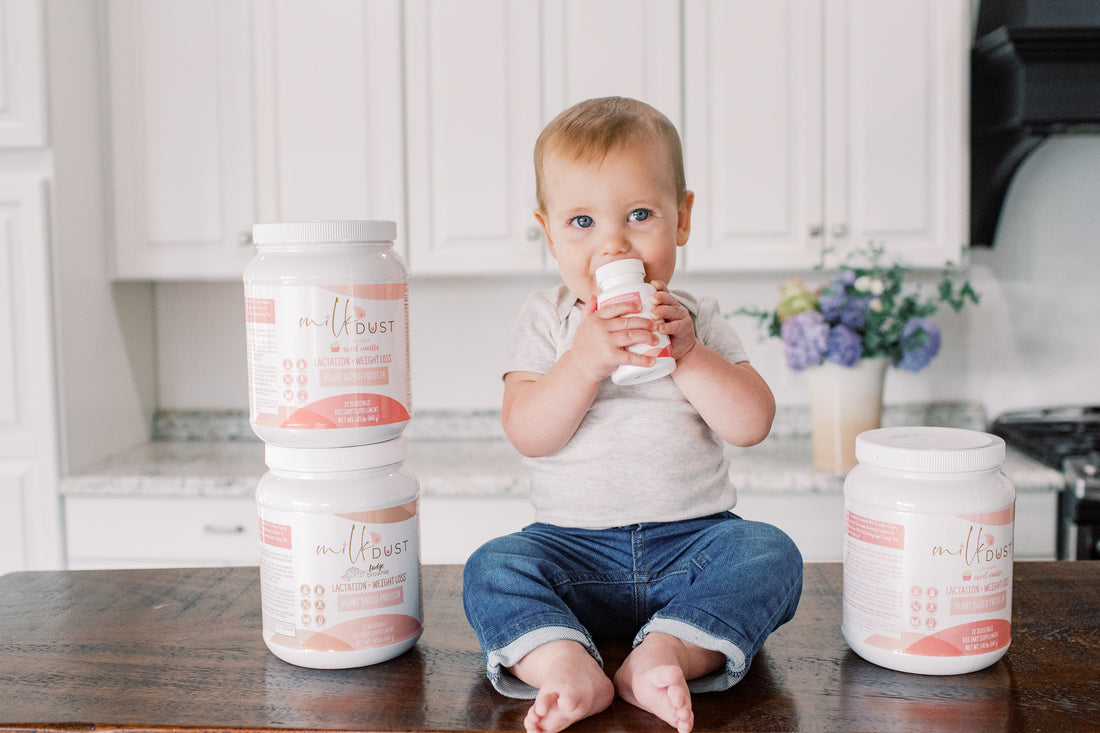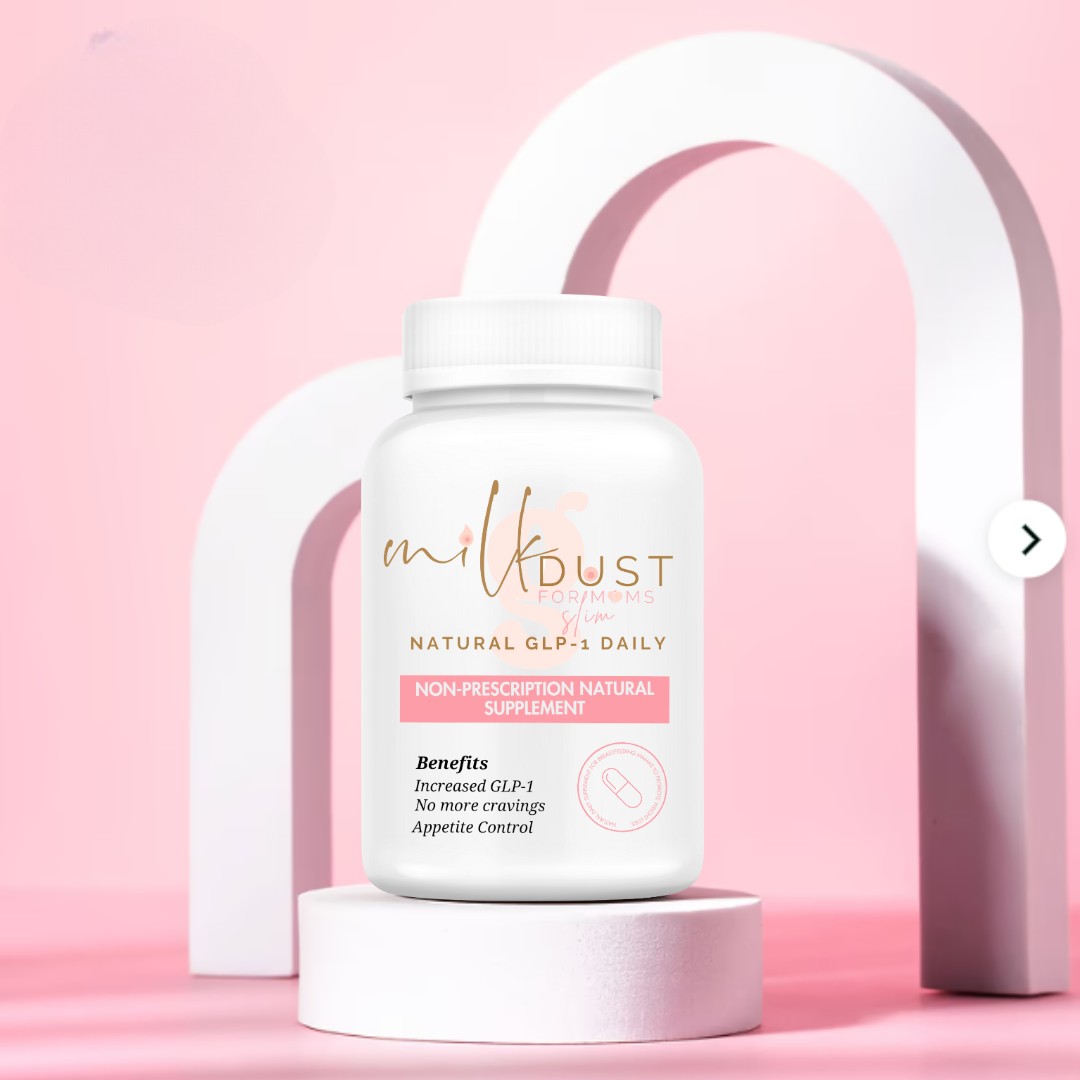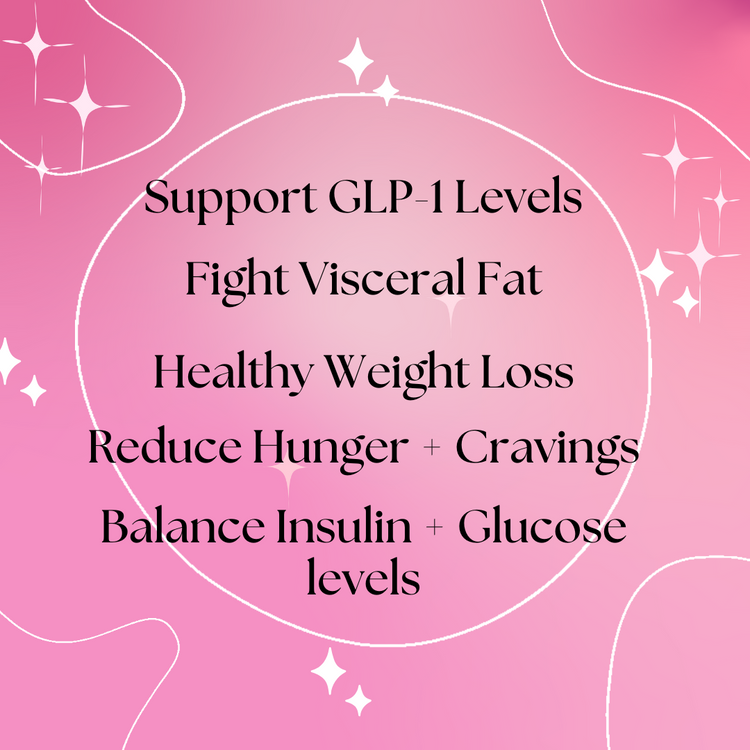Are you a breastfeeding mother on the lookout for a safe and effective protein powder? Look no further! In this ultimate guide, I will walk you through the process of choosing the perfect protein powder that meets both your nutritional needs and the standards of safety for breastfeeding. I am a mom of four, and protein shakes were so helpful for me when trying to lose weight postpartum, while also keeping up my milk supply. I know that protien shakes helped keep me nourished, full of protein, and my milk supply up. Protein supplements make getting enough protein in your diet so much easier as a breastfeeding mom. Breastfeeding mamas need an easy way to get in as much protein as needed, and the protein shakes were such a good option for me. The only issue for me with my first three babies, was that Milk Dust wasn't fully formulated yet. I created Milk Dust to help provide adequate amount of protein for nursing mamas, and I added ingredients that help new moms with milk supply. I was drinking protein shakes and taking extra milk-boosting supplements, and I wated there to be a protein powder that had the milk-boosting ingredients with the proper nutrition all in one. I also wanted a protein powder that really helped me with sugar cravings. I love sugar while breastfeeding, so I included some more antioxidants, vitamins and minerals that are used to balance blood sugar and cravings. Milk Dust is now a top-choice for a safe lactation protein powder, and one of the best dietary supplements for breastfeeding moms on the market.
As a Milk Dust places a strong emphasis on trust, credibility, and expertise, we understand the importance of providing accurate information. That's why we've done the research for you to help you make an informed decision.
When it comes to choosing a breastfeeding protein powder, safety is paramount.
You want to ensure that the product you choose is free from harmful additives, allergens, and contaminants. At the same time, you need a protein powder that is nutrient-rich to support your body's needs during this vital period. The best protein powder is one that is sourced here in the US, tested for toxins, molds and metals, and formulated to nourish your body as a postpartum mama effectively. Extra nutrients and vitamins are good, but you need the right ones, and Milk Dust offers hand-picked nutrients according to what is required during postpartum and lactation.
In this guide, I will discuss the key factors to consider when selecting a safe breastfeeding protein powder. From examining the ingredient list to evaluating third-party certifications, we leave no stone unturned. Our aim is to empower you with the knowledge you need to make a confident and informed choice for both you and your baby.
So, let's dive in and discover the ultimate guide to choosing a safe breastfeeding protein powder. Your health and the well-being of your little one are worth it!
Understanding the Importance of Protein During Breastfeeding
Breastfeeding is a critical phase in both a mother's and a baby’s life. During this time, mothers experience a significant increase in nutritional needs, particularly when it comes to protein. Protein plays a vital role in the overall health and development of both the breastfeeding mother and her baby. It serves as a building block for muscles, tissues, and organs, making it essential for recovery and nourishment during this demanding period.
As a breastfeeding mother, your body requires additional protein to support milk production. The recommended dietary allowance (RDA) for protein increases during lactation, emphasizing the need for mothers to consume sufficient quantities to meet both their needs and those of their nursing infant. Adequate protein intake not only supports the creation of high-quality breast milk but also helps in maintaining the mother’s energy levels, promoting overall health, and facilitating recovery from childbirth.
Moreover, protein is crucial for the baby’s growth and development. Breast milk is rich in proteins that are easily digestible and packed with essential amino acids. These amino acids are vital for the development of the baby’s muscles, brain, and overall body functions. Therefore, ensuring that you consume enough protein is not just beneficial for you, but it also directly impacts your baby's health and development during this crucial stage.
What is Breastfeeding Protein Powder?
Breastfeeding protein powder is a dietary supplement specifically designed to provide additional protein to nursing mothers. These powders are formulated to be safe and effective, addressing the heightened protein requirements during lactation. They can be made from various protein sources, including whey, casein, plant-based proteins, and even egg whites, catering to different dietary preferences and restrictions.
The primary purpose of breastfeeding protein powder is to help mothers easily increase their protein intake without having to consume large amounts of food. This can be particularly beneficial for those who experience a lack of appetite or have busy schedules that make it difficult to prepare protein-rich meals. By incorporating protein powder into your diet, you can ensure you’re meeting your nutritional needs without extra hassle.
It’s important to note that breastfeeding protein powders should not be seen as a replacement for whole foods. Instead, they should complement a well-balanced diet that includes a variety of foods rich in vitamins, minerals, and other essential nutrients. When chosen wisely, these powders can be a convenient and effective way to support your breastfeeding journey.
Recommended Breastfeeding Protein Powder Brands
Finding the right breastfeeding protein powder can be overwhelming given the multitude of options available. I know I am the founder of MIlk Dust, so I believe that Milk Dust is the best option on the market, but I will also go over some other options too, so you can make a good decision on which protein powder is best for you!
Milk Dust Lactation Protein Powder:
Milk Dust lactation protein powder is the best protein powder on the market that actually helps you lose weight. You are of course skeptical, and probaby wondering exactly how Milk Dust can help you safely lose weight while breastfeeding, but as a Pre/Post Natal Fitness Specialist and Certified Nutrition Coach, I recommend Milk Dust to any mother wanting to safely lose weight, while also protecting milk supply. As a mom of 4 boys, I have personally used Milk Dust protein shakes on my weight loss journey while breastfeeding, and I wouldn't have been able to safely lose the baby weight so fast, without the help of the amazing nutrients, protein, vitamins and minerals. I had an abundant milk supply the whole time I was breastfeeding, and lost the weight successfully, even after my fourth baby (and I was much older!).
also read: A Lactation Consultant's Review of Milk Dust
Boobie Body Superfoods:
On my list of protein supplements Boobie Body is next. Boobie Body has a great base protein blend, and it is all plant-based. As I mentioned, I prefer plant-based protein powders for breastfeeding, and this one of the top on the market, but missing some key ingredients that are really important while breastfeeding.
Boobie Body offers an herb blend, that could help with lactation, but doesn't have as much scientific backing. The herb blend does have cinnamon and turmeric, which we new can be very helpful for blood sugar, but not really for lactation. There should at least be a milk thistle or fennel seed to really make this herb blend more powerful for lactation. If you are looking for a protein powder that doesn't have as much milk supply power, this one could be a good option.
At first glance, it may seem more affordable with a few more grams of protein per serving. One scoop offers 19 grams of protein, but there are only 20 servings total. In addition, the protein formula is much simpler when it comes to nutrients and ingredients.
The bottom line:
Boobie Body offers a great protein blend, but is missing key nutrients and ingredients that would make it more powerful for lactation. It also doesn't have the blood sugar blend to curb cravings and help with weight loss.
However, some brands stand out for their commitment to quality, safety, and nutritional efficacy. One such brand is Milk Dust, which is known for its clean ingredients and transparency regarding sourcing and production processes. Their protein powders are specifically formulated for breastfeeding mothers, ensuring that they meet the unique nutritional needs during lactation.
Pregnancy and Nursing Protein by Pink Stork:
Pink Stork's pregnancy and nursing protein is a newer "lactation" protein on the market, but I want to note that there are absolutely no milk-boosting ingredients in this protein, and it is a whey protein. This means that if your baby is sensitive to dairy in any way, it can make them very fussy.
This protein is extremely simple, just pure whey protein, without any additional nutrients, superfoods or herbs. This leaves many postparutm mamas with nutrient deficiencies, and only supplies protein.
I recommend finding another protein powder that offers more complete nutrients, and is formulated for breastfeeding. Despite Pink Stork's marketing efforts, it is no different than any other whey protein powder on the market.
Non-Lactation Protein Powder Options Safe For Breastfeeding:
Orgain Organic Protein
Orgain is a great, organic, plant-based protein powder that isn't focused on lactation, but a clean option for protein shakes. Like Pink Stork's protein powder, there aren't any specific lactation-boosting ingredients, but it is still a good source of protein. Orgain has a great protein blend, but it does have peanuts, which some people are sensitive too. You get 21 grams of protein per serving, but no real additional nutrients, vitamins or minerals that are really important postpartum and breastfeeding. If you don't get these nutrients in a protein powder, definitely look to supplement them with a greens powder, or a good multivitamin to help as well. This is a great basic protein powder that you can find in many stores for a lower price, so you are at least getting your protein needs met with a shake.
Truvani Plant-Based Protein Powder:
This is a great protein powder full of organic ingredients and a great taste and texture. They have a few different flavors, and grams of protein per serving. Like the Orgain, this protein powder doesn't have any extra ingredients and nutrients for postpartum and breastfeeding mamas, but it is a good way to get your protein in. There are no artificial sweeteners, made with natural flavors, and can easily be blended as a with whole foods as a lactation smoothie, or you can drink it mixed with water or a good milk like oat milk.
The Benefits of Using Breastfeeding Protein Powder
Incorporating breastfeeding protein powder into your diet offers numerous advantages that can enhance your overall wellbeing during this demanding time. One of the most significant benefits is the convenience it provides. For busy mothers, finding time to prepare nutritious meals can be challenging. Protein powders can be easily mixed into smoothies, oatmeal, or even baked goods, making it simple to increase protein intake without much effort.
Another benefit is the nutritional support that protein powders can provide. Many breastfeeding protein powders are fortified with additional vitamins and minerals that are crucial for both the mother and the baby. These can include calcium, iron, and omega-3 fatty acids, which are essential for bone health, energy, and brain development. By choosing a protein powder that includes these added nutrients, mothers can ensure they are getting the comprehensive support they need during lactation.
Lastly, protein powders can help manage weight effectively post-pregnancy. Adequate protein intake can promote satiety, making you feel fuller for longer and potentially reducing cravings for unhealthy snacks. This can be particularly helpful for new mothers who are trying to navigate the challenges of postpartum weight loss while ensuring they maintain a healthy milk supply for their baby. Thus, breastfeeding protein powder can play a crucial role in achieving a balanced diet and supporting overall health.
Common Concerns About Using Protein Powder While Breastfeeding
While breastfeeding protein powder can offer several benefits, many mothers have concerns about its safety and potential effects on breastfeeding. One common worry is whether the ingredients in protein powders could adversely affect milk supply or the baby’s health. It is essential for mothers to choose high-quality protein powders that are specifically formulated for breastfeeding. This means looking for products that have been rigorously tested for safety and efficacy.
Another concern is the possibility of allergens. Some protein powders may contain ingredients that could trigger allergic reactions, especially for babies who are particularly sensitive. Mothers should be vigilant about reading labels and selecting products that are free from common allergens such as soy, dairy, or gluten, depending on their own dietary restrictions and their baby’s needs. Consulting with a healthcare professional can also provide peace of mind and guidance tailored to individual circumstances.
Lastly, there is the issue of additives and sweeteners found in many protein powders. Some products may contain artificial flavors, colors, or sweeteners that could potentially be harmful. It is important for breastfeeding mothers to opt for protein powders that use natural ingredients and are free from harmful additives. Researching brands and understanding what goes into each product can help alleviate these concerns and ensure a safe choice.
How to Choose a Safe Breastfeeding Protein Powder
When it comes to selecting a safe breastfeeding protein powder, there are several key considerations to keep in mind. First, look for products that are specifically marketed for breastfeeding mothers. These products are more likely to be formulated with the unique nutritional needs of lactating women in mind. This can include higher protein content and additional nutrients that support milk production and overall health.
Next, consider the source of the protein. There are various types of protein powders available, such as whey, casein, soy, pea, and hemp. Understanding the differences between these sources can help you choose one that aligns with your dietary preferences and any allergies you may have. For example, if you are lactose intolerant, a plant-based protein powder may be a better choice than whey protein powder.
Additionally, always check for third-party testing and certifications. Products that have been independently tested for purity and safety can provide an extra layer of assurance. Look for certifications from reputable organizations that verify the product is free from harmful contaminants such as heavy metals, toxins, and banned substances. This step is crucial in ensuring that the protein powder you choose is safe for both you and your nursing baby.
Key Factors to Consider When Selecting a Breastfeeding Protein Powder
When selecting a breastfeeding protein powder, it’s essential to evaluate several factors to ensure you make the best choice for your needs. One of the foremost factors is the ingredient list. A clean, transparent ingredient list is a good indicator of a high-quality product. You should aim for protein powders that contain minimal ingredients, avoiding those with excessive fillers, artificial sweeteners, and preservatives.
The protein content per serving is another critical consideration. Different protein powders will have varying amounts of protein, and it’s essential to choose one that aligns with your dietary goals. Generally, breastfeeding mothers should aim for at least 20 grams of protein per serving to effectively support their nutritional needs. Be wary of products that skimp on protein while loading up on sugars or other less beneficial ingredients.
Lastly, consider the taste and mixability of the protein powder. A product that tastes good and blends well can make it more enjoyable to incorporate into your diet. Many brands offer sample sizes, which can be a great way to try out different flavors and textures before committing to a larger purchase. Finding a protein powder that you look forward to consuming can significantly enhance your overall experience and adherence to a healthy diet.
Reading and Interpreting Product Labels for Breastfeeding Protein Powders
Understanding how to read and interpret product labels is crucial when selecting a breastfeeding protein powder. The nutrition facts label provides vital information about the protein content, calories, and other nutrients per serving. Begin by looking at the serving size to ensure that you are comparing apples to apples when evaluating different products. Some brands may list a smaller serving size, making their protein content appear higher than it actually is.
Next, examine the ingredient list closely. Ingredients are listed in order of quantity, so the first few items are the most prevalent. Look for recognizable whole food ingredients and avoid products that list artificial additives or fillers at the top of the list. If the ingredient list includes long, complicated names, it may be a sign that the product is not as clean as you’d like.
Additionally, pay attention to any claims made on the packaging. Terms like “natural,” “organic,” or “non-GMO” can be misleading without proper certification. Look for labels that provide clear information about the sourcing and quality of the ingredients. Certifications from reputable organizations can help validate these claims and ensure you are choosing a product that aligns with your values for health and safety.
Tips for Incorporating Breastfeeding Protein Powder into Your Diet
Incorporating breastfeeding protein powder into your daily meals can be simple and enjoyable with a little creativity. One of the easiest ways to use protein powder is by adding it to smoothies. Combine your favorite fruits, some leafy greens, a scoop of protein powder, and a liquid base such as almond milk or coconut water for a nutritious and delicious beverage that supports your energy levels.
Another great option is to mix protein powder into your breakfast. Whether you’re making oatmeal, pancakes, or yogurt, adding a scoop of protein can increase the nutritional value of your meal without much effort. For instance, stirring protein powder into your oatmeal or yogurt can keep you feeling full and satisfied throughout the morning, providing essential nutrients to kick-start your day.
Lastly, don’t hesitate to get creative with baking. Protein powder can be a fantastic addition to baked goods such as muffins, cookies, or energy bars. Substitute a portion of the flour with protein powder to enhance the protein content of your favorite recipes. This way, you can enjoy tasty treats while also meeting your nutritional needs during breastfeeding.
Choosing a safe breastfeeding protein powder is an important decision that can significantly impact your health and wellbeing during this critical time. By understanding the importance of protein, knowing what to look for in a protein powder, and being aware of the common concerns, you can make an informed choice that supports both you and your baby.
Prioritize high-quality ingredients, transparency, and third-party testing when selecting a protein powder. Remember to read labels carefully and ensure the product aligns with your dietary needs and preferences. Additionally, consider how you can easily incorporate protein powder into your daily meals to enhance your nutrition without adding extra stress to your routine.
Ultimately, nourishing yourself is essential for nurturing your baby, and a safe breastfeeding protein powder can be a valuable part of that journey. With the right knowledge and resources, you can confidently choose a protein powder that meets your needs, ensuring both you and your little one thrive during this beautiful stage of life.










